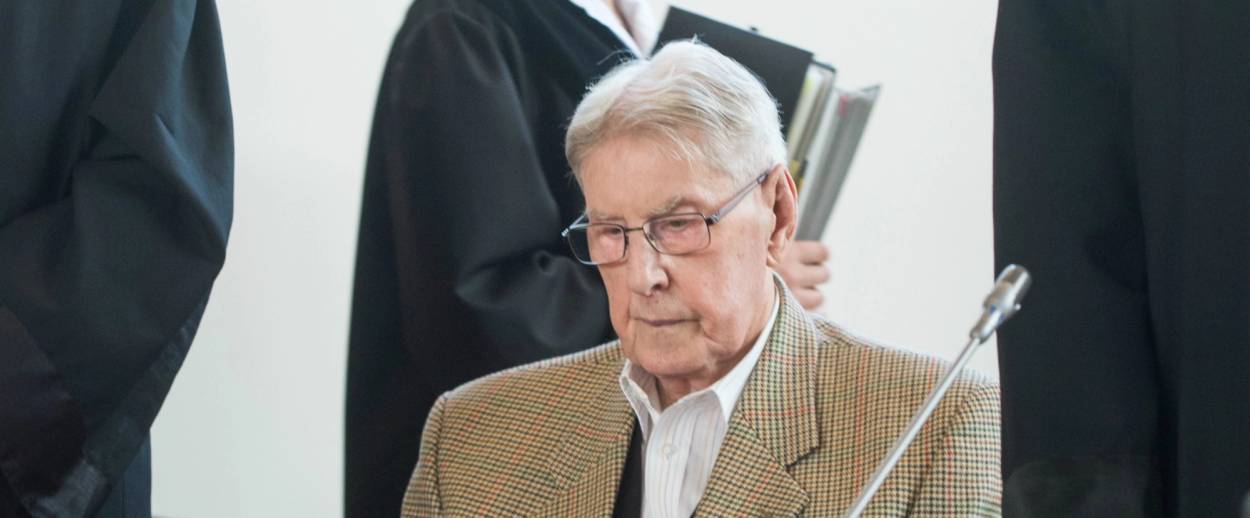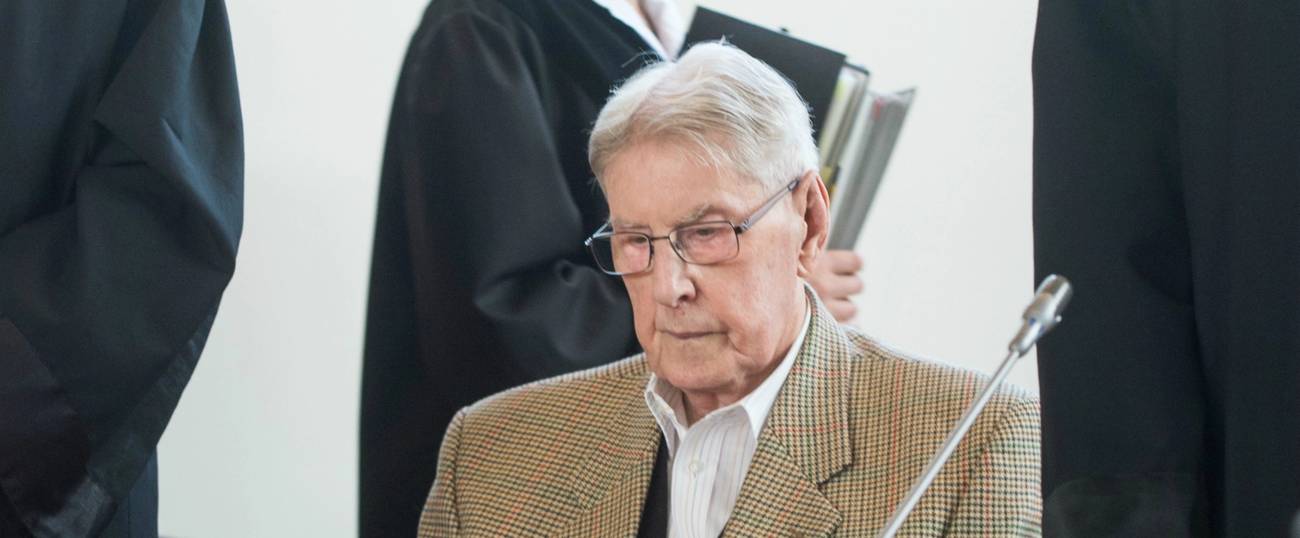A 94-Year-Old Former Auschwitz Guard Has Been Found Guilty of Accessory to Murder
Reinhold Hanning was sentenced to five years in prison by a German court on Friday




At the Detmold state court in Germany this week, 94-year-old Reinhold Hanning was convicted of 170,000 counts of accessory to murder for his role as a guard at the Auschwitz concentration camp from January 1943 to mid-1944. Selecting prisoners for hard labor and designating others for the gas chambers were among his responsibilities, and the court also heard substantial evidence that Hanning was aware of forced starvation and mass shootings, if not an active participant himself. After a four-month trial, Hanning was sentenced to five years in prison.
Towards the conclusion of his four-month trial, Hanning had this to say:
I have been silent all my life. I want to tell you that I deeply regret having listened to a criminal organization that is responsible for the deaths of many innocent people, for the destruction of countless families, for the misery, distress and suffering on the part of victims and their relatives…I am ashamed that I let this injustice happen and have done nothing to prevent it…I apologize formally for my behavior. I am truly sorry.
Hanning was prosecuted with a similar argument used against Oskar Groening last summer, who was convicted of 300,000 counts of accessory to murder at Auschwitz during the same time period. Like Hanning, Groening was tried not for his participation in the atrocities, but for his complicity in the day-to-day administration of the camp.
Reported the BBC:
German prosecutors were required, until recently, to provide evidence that defendants were directly involved in the killings. That changed with the 2011 conviction of John Demjanjuk, when a judge concluded that his activities as a camp worker in Nazi-occupied Poland amounted to complicity in mass murder.
As Ynet points out, trials of this sort have become ever more scarce. As Nazis and their collaborators have almost completely died out, the gulf between the events and the trial have raised ethical questions about the purpose of prosecuting enfeebled war criminals.
During sentencing, Judge Anke Grudda said: “There is no appropriate punishment” for Hanning’s crimes, adding, according to Yahoo! News, “that the court had to follow guidelines and also take into account his age, his statement of remorse, and the length of time that had elapsed since the crimes.”
“We cannot, and should not punish him symbolically for all the perpetrators of the Holocaust,” she said.
Hanning’s attorney, Andreas Scharmer, will likely appeal the decision, adding ““I didn’t expect the court to have the courage for an acquittal.”
Jesse Bernstein is a former Intern at Tablet.